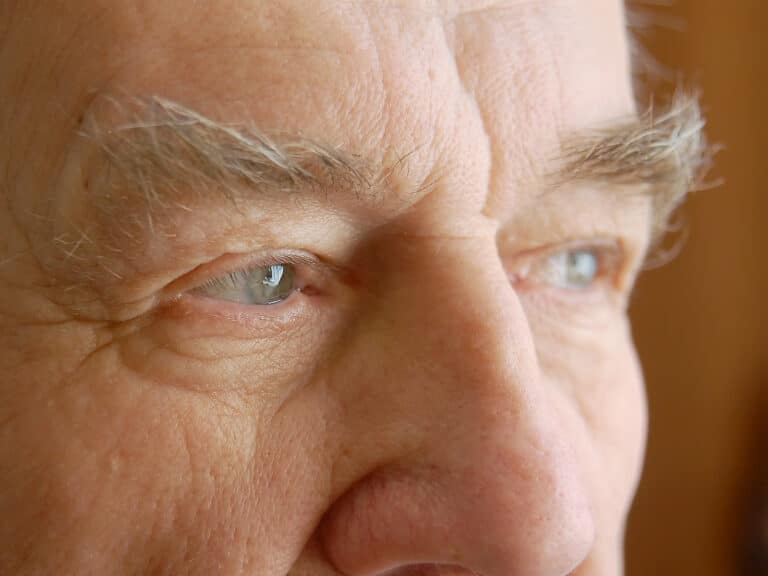If your loved one has type 2 diabetes, keeping his blood sugar at a safe level may seem like a never-ending task that he’d rather not have to think about throughout the day. High blood sugar levels create a lot of health issues and affect the body’s organs in many ways. It can create issues with the heart, brain, and the eyes. When the eyes become damaged from consistently high blood sugar levels, vision loss can occur, including blindness if not dealt with immediately.
How Diabetic Retinopathy Develops
Over time, having consistently high blood sugar levels due to diabetes can damage the retina. The retina is the part of the eye that is responsible for detecting light and sending signals back to the brain through the optic nerve. Diabetes can damage the tiny blood vessels that are connected to the retina. Damage to these vessels can make it difficult for blood to flow through them so they leak or burst and stop working. The eye will then generate new blood vessels to try to replace the damaged ones but those new ones don’t work well and will also leak or bleed out. Over the years, scar tissue can develop, which often leads to vision loss.
Diabetic Retinopathy Symptoms
In the early stages, there are no symptoms, which makes those regular vision screening appointments for your loved one so important for him to attend. A screening may see the early stages of the disease and help your loved one develop a plan to reduce the risk of the disease developing to a point where he loses some of his sight.
Once the disease has progressed, it will present with certain symptoms. If your loved one has diabetes, hasn’t had his regular eye exams and any of these symptoms appear, he should see his doctor right away for an evaluation.
- Blurred Vision or patches of sight that are blurry or fuzzy
- Increase in floaters (small shapes that look like dust or tiny hairs) in his vision
- A gradual loss in vision not related to an outdated eyeglass prescription
- Eye pain
- Difficulty seeing at night
- Vision Loss Assistance with Disabled Adult Care
If your loved one loses a lot of his sight due to diabetic retinopathy, that loss cannot be regained but he can take steps to prevent further vision loss. The leading way to prevent more damage is to actively work to control his diabetes and high blood sugar levels. Staying on top of blood sugar, cholesterol, and blood pressure levels will all help reduce the damage done to the eyes when these levels are out of control. Taking his medications as prescribed and attending all vision screening appointments is also an important part of staying ahead of any further vision loss.
If the vision loss has become so great that your loved one now struggles with some personal care tasks or managing his home, having providers who come to his home to provide disabled adult care can help him stay in his home longer. A disabled adult care provider can help with transportation needs he might have as well as assist in preparing meals that will help keep his diabetes in check. A disabled adult care provider can also help him with personal care tasks such as shaving or nail care if his loss of sight makes these types of personal care tasks too difficult.
If you or an aging loved one are considering Disabled Adult Care in Leesburg, VA, please contact the caring staff at Access Home Care Inc today! Call (703) 765-9350
Access Home Care provider in Arlington, Alexandria, Leesburg, Reston, Herndon, Manassas, Ashburn, Falls Church, McLean, Lorton, Springfield, Woodbridge, Fairfax, Virginia and the surrounding communities.
“My desire to enter into nursing started when one of my older sisters died of kidney disease due to lack of care. At age 15, I decided to enter into nursing so that I could provide quality care to patients.Upon arrival in United States at 21 years of age, I enrolled in T.C Willliams School of Practical Nursing while working as a nursing assistant at a nursing home. I also worked as a part-time home health aide to take of the elderly. After completion of my practical nurse education, I worked in geriatric psychiatry unit at Dominion Hospital and Arlington Correctional facility mental health unit.
I completed Marymount University in 2001 and entered into Home Care as a field case manager.
I held that position for 2 years and as an Administrator, and for another 2 years until Access Home Care was found in 2004."
Today, Access Home Care has over 300 employees and 286 clients.
- Personal Care at Home Helps Seniors Stuck at Home Connect With Others - April 17, 2025
- Five Tips for Living with Chronic Lower Back Pain - April 3, 2025
- How 24-Hour Home Care Is Different From Other Types Of Care - March 19, 2025



